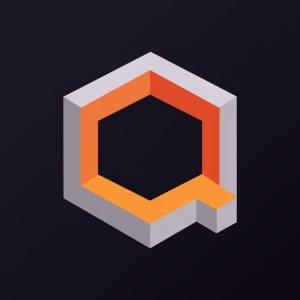IonQ and South Korea’s Sungkyunkwan University Renew International Quantum Alliance
Extension of original three-year deal to provide researchers and academics with access to IonQ’s leading trapped-ion systems
Renewal closely follows Memorandum of Understanding established with the South Korean government to promote quantum education and training
“As quantum breakthroughs and achievements occur at breakneck speeds, it is imperative that we train and educate the next generation of quantum researchers and academics with the latest available hardware,” said Peter Chapman, CEO and President of IonQ. “Renewing our alliance with SKKU ensures users across
Since 2021, researchers and academics across
“We are pleased by the research results we achieved using IonQ’s systems and look forward to continuing our alliance in the coming years,” said Yonuk Chong, SKKU Professor of SAINT (SKKU Advanced Institute of NanoTechnology). “Establishing South Korea as an international leader in quantum computing remains a top priority for the South Korean government, and we believe IonQ’s trapped-ion systems have demonstrated real-world value in helping achieve this goal.”
Today’s announcement is the latest in a series of IonQ initiatives across
IonQ’s quantum systems are available through the cloud on Amazon Braket, Microsoft Azure, and Google Cloud, as well as through direct API access. To learn more about how you can get started on an IonQ system today, please contact us directly at: https://ionq.com/get-ready.
About IonQ
IonQ, Inc. is a leader in quantum computing that delivers high-performance systems capable of solving the world’s largest and most complex commercial and research use cases. IonQ’s current generation quantum computer, IonQ Forte, is the latest in a line of cutting-edge systems, boasting 35 algorithmic qubits. The company’s innovative technology and rapid growth were recognized in Fast Company’s 2023 Next Big Things in Tech List and Deloitte’s 2023 Technology Fast 500™ List, respectively. Available through all major cloud providers, IonQ is making quantum computing more accessible and impactful than ever before. Learn more at IonQ.com.
IonQ Forward-Looking Statements
This press release contains certain forward-looking statements within the meaning of Section 27A of the Securities Act of 1933, as amended, and Section 21E of the Securities Exchange Act of 1934, as amended. Some of the forward-looking statements can be identified by the use of forward-looking words. Statements that are not historical in nature, including the words “believe,” “will,” and other similar expressions are intended to identify forward-looking statements. These statements include those related to the ability for third parties to implement IonQ’s offerings to increase their quantum computing capabilities, the effect of increased availability of customer support functions, IonQ’s quantum computing capabilities and plans, access to IonQ’s quantum computers, increases in algorithmic qubit achievement, and the scalability and reliability of IonQ’s quantum computing offerings. Forward-looking statements are predictions, projections and other statements about future events that are based on current expectations and assumptions and, as a result, are subject to risks and uncertainties. Many factors could cause actual future events to differ materially from the forward-looking statements in this press release, including but not limited to: changes in the competitive industries in which IonQ operates, including development of competing technologies; changes in laws and regulations affecting IonQ’s business; IonQ’s ability to implement its business plans, forecasts and other expectations, identify and realize partnerships and opportunities, and to engage new and existing customers. You should carefully consider the foregoing factors and the other risks and uncertainties disclosed in the Company’s filings, including but not limited to those described in the “Risk Factors” section of IonQ’s most recent Quarterly Report on Form 10-Q and other documents filed by IonQ from time to time with the Securities and Exchange Commission. These filings identify and address other important risks and uncertainties that could cause actual events and results to differ materially from those contained in the forward-looking statements. Forward-looking statements speak only as of the date they are made. Readers are cautioned not to put undue reliance on forward-looking statements, and IonQ assumes no obligation and does not intend to update or revise these forward-looking statements, whether as a result of new information, future events, or otherwise. IonQ does not give any assurance that it will achieve its expectations.
View source version on businesswire.com: https://www.businesswire.com/news/home/20240213953989/en/
IonQ Media contact:
Tyler Ogoshi
press@ionq.com
IonQ Investor Contact:
investors@ionq.co
Source: IonQ







